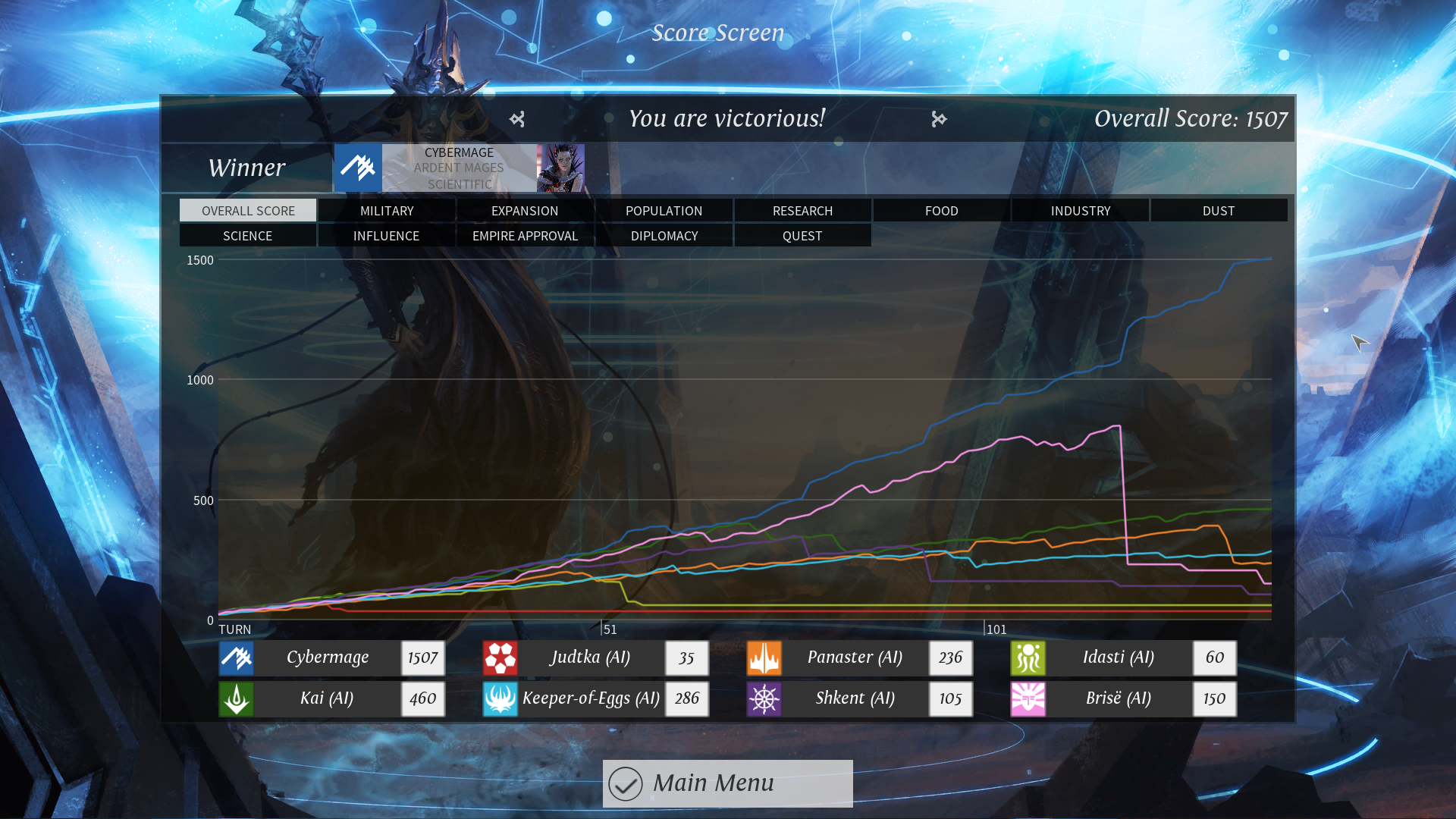Turn-based Strategy: The Foregone Conclusion Problem
If you play strategy board games, you’ve probably experienced this problem: “You are about halfway into the game. It was anyone’s game until now, but Ray is definitely starting to pull ahead now. You try to convince the other players to rally against her, but with mixed success. You gamble everything on a last-ditch attack to try to stop her, but it fails. Your loss and her victory are now foregone conclusions, but the game is not over yet. Now you have to sit there for another hour and suffer while the game plays out to its foregone conclusion.”
I will call this the Foregone Conclusion Problem. Another way to describe it may be to say that a game is “overstaying its welcome”: forcing you to continue playing long after the players have figured out who will win.
So why am I writing about it now? For the last few months, I’ve been playing multiplayer turn-based strategy games three nights a week. We started with two or three rounds of Civilization VI, then a round of Stellaris. We played none of these games to the conclusion where the game proclaims a winner. Once the writing was on the wall, we would all agree to declare a winner and stop playing, so we could start a new game. We are currently playing Endless Legend. I reckon we’re about halfway through, but we already have a prominent leader based on score, so unless something drastic happens in the next few sessions, I expect it will also end with a fizzle instead of a bang.
Since we’re all struggling with Endless Legend and good tutorial videos are few and far between, I decided to play a single-player match to learn the game a bit better. It’s hard to know the exact duration of the game because it doesn’t provide statistics and neither does Steam, but I estimate it was somewhere between 12 and 30 hours. Now have a look at my score graph (I’m Cybermage):

I went for a scientific victory, which meant I had to research five of the six technologies in Era VI to win. When I started on the first technology, it took between 15 and 20 turns to finish. That granted me a 100% bonus to science output in my cities, and I switched all cities over to science to try and finish sooner, so the subsequent ones went a bit faster. Overall it was probably 30-40 turns in total, but as you can see in that graph, at that point, no one was a threat to me anymore. I got bored and picked off the pink player while waiting, but the writing was probably already on the wall around turn 75 when I started taking out the purple player. If only the game could’ve realized I had won at the same time I did, then I could’ve shaved off half of that playtime and played two games instead of one.
This problem is not new. As hinted at by my first example, many board games suffer from it. Most modern board games try to limit their total duration to something reasonable, like 2 to 4 hours. Sometimes the solutions can cause other problems like the game ending too abruptly or feeling shallow and luck-based. Still, I think most of the board game players I know seem to prefer shorter experiences that don’t overstay their welcomes so that they can have time to play more games.
I don’t think I’ve ever seen any TBS or 4X game on the computer try to address this problem. Wouldn’t it be great if we could design 4X games that preserve the scope for epic struggles that the genre offers but that do a better job of respecting the fact that their players have limited time? Could we steal some mechanics from board games to help us detect sooner when someone has won and end the game so that the players can move on with their lives?
